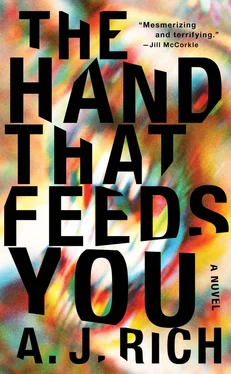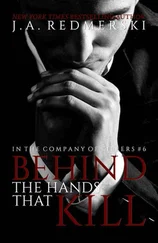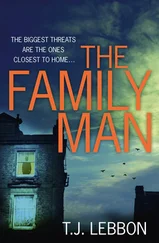“He died six weeks ago.”
“He sent me flowers.”
“I found the body.”
“You don’t understand. He sent me flowers three days ago. I got an e-mail from him this morning. He’s in hiding thanks to those incompetent Boston detectives. And thanks to Susan Rorke’s crazy friends.”
Her certainty about Bennett’s being alive threw me off-balance. In the moment before I righted myself, I sped through a what-if scenario. What if the body had not been Bennett’s? No one could identify it. No face. No fingerprints. What if Bennett were alive? The possibility made me sick and scared, but the chance to confront him excited me.
I confronted Samantha instead. “You didn’t answer my question.” I held up the photo. “Is this your fiancé?”
“Why do you have a picture of him?”
“I was engaged to him, too.”
She snorted. “Did one of Susan Rorke’s friends send you the photo? Did one of them send you to meet me? Are you trying to flush him out for the police? I know what entrapment is.”
I opened my purse and took out the tiny leather box, lined in velvet, that held the ring Bennett had given me. I slipped it onto my finger to show her that it fit. I moved my hand next to hers.
“So you’ve got Susan’s ring. Her friends will do anything to frame him.” Her voice was louder than the murmur at the communal table. I was aware of people looking and listening. “I already know about that. Susan wouldn’t return his grandmother’s ring so he had a copy made for me.”
Shortly before Bennett died, I had driven my Zipcar into the rear of the taxi stopped in front of me. I had been looking straight ahead, yet realized at the moment of impact that I couldn’t see what was right in front of me. Samantha was the driver now. I realized I could show her any amount of proof of Bennett’s duplicity and she would not see it. I tried a different track.
“Who do you think killed Susan Rorke?”
“Susan Rorke killed Susan Rorke. She told him that if he didn’t go through with the wedding, she would kill herself and make it look like murder. She even scratched the window frame where she jumped to make it look as though there had been a struggle. Desperate bitch.” Her voice was so loud I wanted to shush her, but I didn’t dare interrupt now that she was finally saying something.
“She could have taken the high road, but, no — Susan Rorke took everyone down with her. She had no shame. She couldn’t bear that we were happy and planning our own wedding. Do you know what she did the morning before she killed herself? She had an announcement of her engagement published in the Boston Globe .”
People were no longer hiding their eavesdropping. In Samantha’s agitation, her exaggerated hand gestures knocked over a pepper mill. She kept on talking. I sensed those hands might be capable of pushing a body out a window.
Samantha was still on a tear, and we had been talking for well over her designated fifteen minutes. “And another thing. Susan volunteering at the homeless shelter was self-serving. She didn’t care about the poor. She cared about getting promoted at work and thought it would look good on her CV.”
I interrupted, “What kind of volunteer work do you do?”
“How do you know I volunteer?”
“Do you?”
“All I’ll say is that it has nothing to do with my résumé!”
A waiter came over and asked if Samantha would lower her voice.
“I saw a woman change her baby’s diaper on a table in here and no one scolded her!” Samantha said.
Nevertheless, she asked for the check and then delivered a bombshell. “Maybe you should talk to his ex-wife.”
“He was married?” I noted the power shift between us.
“Your fiancé never told you he’d been married? Susan knew.”
Collecting our things to leave gave me a moment to collect my thoughts. “How can I reach her?”
“She’s in the book. Sag Harbor. Uses her maiden name. Loewi, Pat.”
Samantha said a brusque good-bye. I watched her back and felt that my suspicion would be confirmed; I would tell the Boston detective about her. How else would she have known about the fingernail scratches on the window frame?
• • •
I hadn’t read Shakespeare since high school but opened a volume of the collected plays to take another look at Othello . In the play, Othello’s embittered ensign, Iago, makes the general believe that his wife, Desdemona, has been sleeping with a lieutenant in Othello’s army. Believing this lie, the enraged Othello strangles the innocent Desdemona with his bare hands. Not until graduate school did I learn of Othello syndrome, a type of morbid jealousy that ends in violence. Not all societies punish crimes of passion. For instance, if a woman in Hong Kong discovers her husband isn’t being faithful, she is legally allowed to kill him, but she can use only her hands. However, the husband’s lover is allowed to be killed in any manner the wife chooses. This ancient law is still on the books. According to crime statistics, jealousy is one of the top three motives for murder.
I sat at my kitchen table debating my motive for notifying the Boston detective about Samantha. Did it matter if my suspicions were tainted with jealousy? I remembered the first time Bennett and I had the age-old conversation describing our past love affairs, except in Bennett’s case the love affairs weren’t in the past — they were simultaneous. A memory from that same AP lit class in which I read Othello , courtesy of William Faulkner: “The past is never dead. It’s not even past.” Bennett’s lie about his matriculation at McGill might have contained this much truth: a lover he called Sam. Short for Samantha? He told me she had initially pursued him, pursued him to the point of stalking. He said he had changed phone numbers and moved, but her pursuit had not diminished. He said she frightened him. He claimed she followed home a woman he was dating and slashed her tires. That hadn’t stopped him from asking this Sam to marry him. She had the ring. He was the kind of liar who levitated just above the truth.
I dialed the Boston detective. We’d spoken enough times by now not to bother with small talk.
I told him my suspicions about Samantha. “She knew about the scratches in the window frame.”
“It was in the papers. This Samantha is Bennett’s third fiancée?” He did not bother to tamp down the sarcasm in his voice.
“The third one that I know about.” I didn’t mention an ex-wife.
“Other than her knowing about the scratches in the window frame, all you are basing your accusation on is that she claims Susan Rorke killed herself?”
“She displayed morbid jealousy and irrational anger. I say this as a professional.”
I knew it hardly mattered what my degree would be in — if I could find the time and concentration to finish my thesis. All this detective would hear in my voice was the jealousy of a jilted lover.
The streetlights came on as I hung up. The November twilight started at four thirty. I hadn’t eaten since Pain Quotidien and I’d only had a cappuccino. The kitchen was cleaner now than ever before. I hadn’t so much as fried an egg since returning. I took out the few ingredients I had — ketchup, potato chips, and a $29 sliver of Stilton I’d bought at the cheese shop. I put a smear of Stilton on an unbroken potato chip and dipped it in the ketchup: a protein, a starch, and a vegetable. I let the darkness encroach. Steven had thought I was reckless to live here after what had happened. But if I moved, I would keep moving and never feel at home.
I walked to the window. My view was backyards. The old Italians still hung their laundry on clotheslines. I watched a woman’s thick arm pull a row of sheets through an open window.
Читать дальше

![Корнелл Вулрич - Eyes That Watch You [= The Case of the Talking Eyes]](/books/32103/kornell-vulrich-eyes-that-watch-you-the-case-of-thumb.webp)









